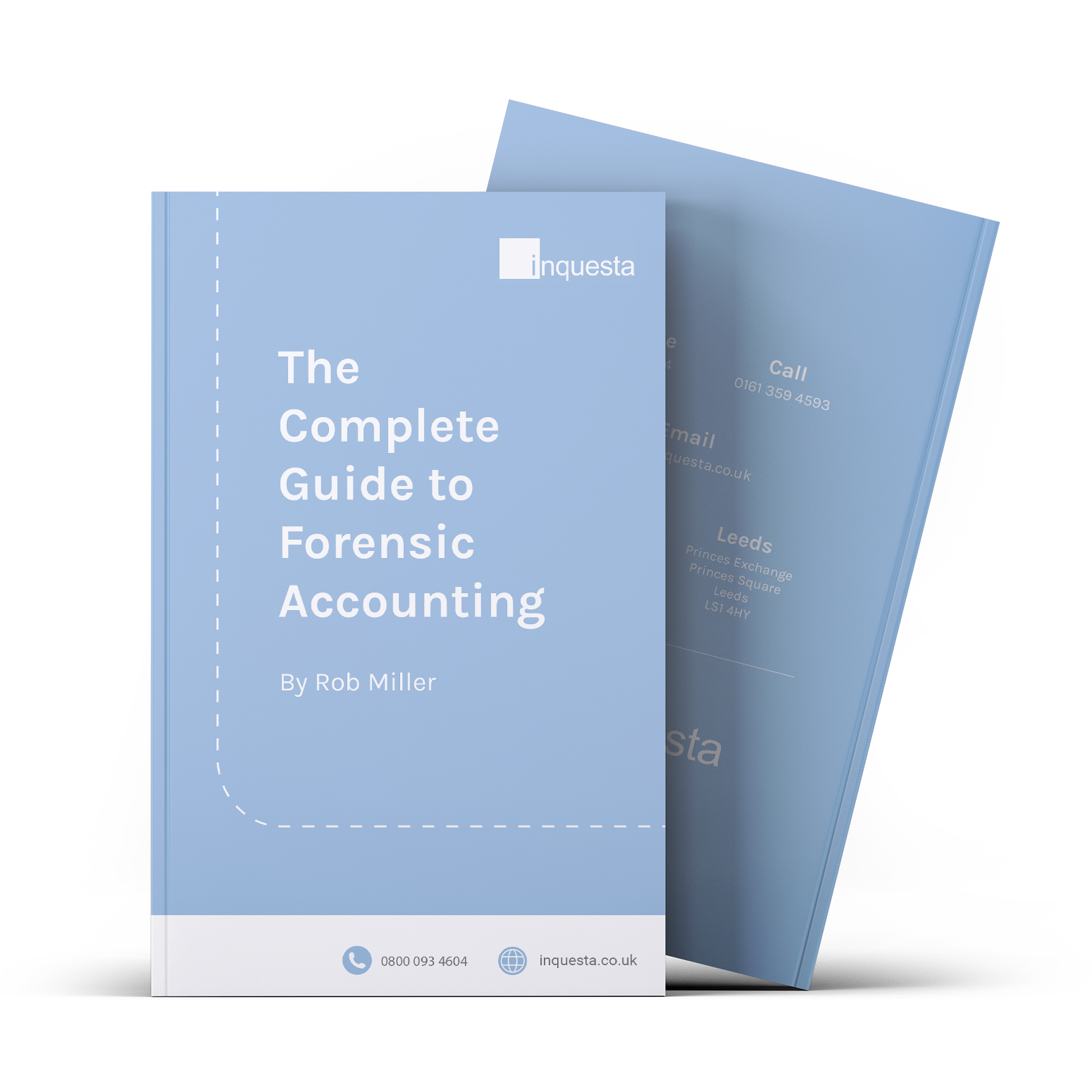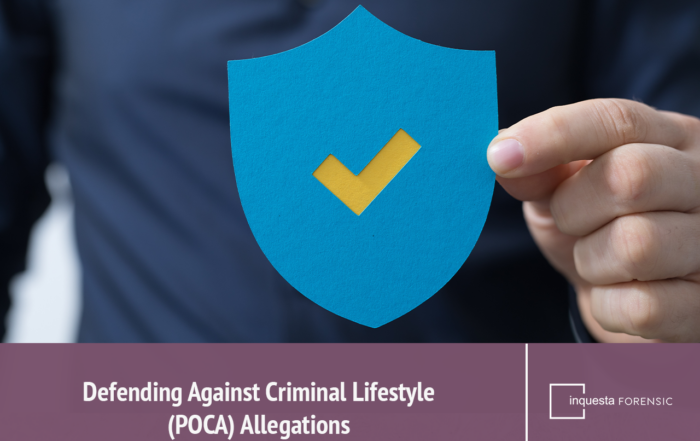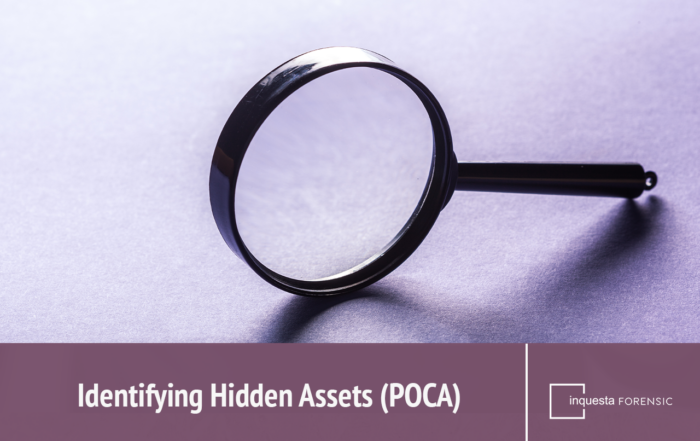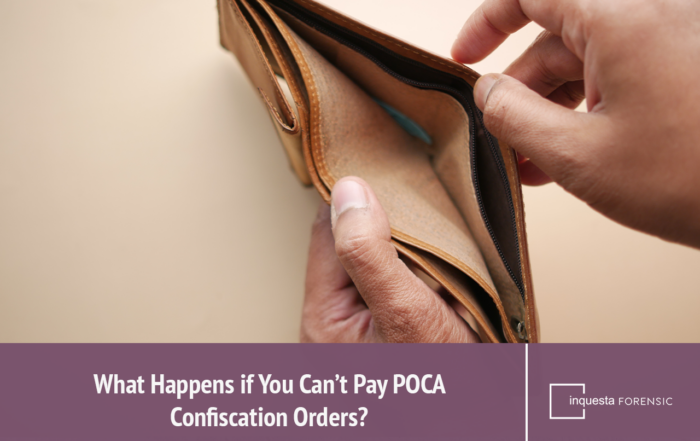Why Use Forensic Accountants for a Confiscation Order Under the Proceeds of Crime Act
The initial statements in confiscation order proceedings can be particularly harsh. Instructing a forensic accountant can provide a huge advantage in combating this. An experienced forensic accountant will attempt to lower any excessive amount stated in the confiscation order, as well as attempt to prove that the amount a defendant benefited by way of criminal activity is actually less than stated.
The aim of the initial statement in a confiscation order is to take the total sum of money a person has come by unlawfully, but it is not uncommon that this figure is in reality much lower than the amount that is expected to be paid back.
This altering of the benefit amount is important for the client because traditionally the sentence for crimes that fall under the Proceeds of Crime Act is handed out on a scale that depends on how much of the amount charged goes unpaid. The lower the amount, the better chance the defendant will have of paying it off and getting a better sentence.
The expertise a forensic accountant can offer a client involved in a confiscation order under the Proceeds of Crime Act can be huge. Their proficiency with data and numbers can allow them to uncover clear and relevant data regarding legitimate income and separate it from the benefit figure. They can also trace payments between multiple sources and prove their legitimacy.
Proceeds of Crime Act Defence: What You Need to Know
The Proceeds of Crime Act sets out the key legislation surrounding the recovery of assets acquired via criminal means. The most common method of recovery is confiscation, but recovery can also take the guise of cash seizure, taxation powers, and more.
The main goal of the asset recovery schemes in the POCA are to deny criminals the short and long-term use of their wrongfully acquired assets, recover all of said unlawfully acquired assets, and deter future criminality.
The Act is also known to provide a number of investigative powers should it be necessary. These powers include search and seizure of assets, the ability to apply for production and disclosure orders, and the ability to freeze assets.
Our Work on Proceeds of Crime Act Cases Typically Entails
A forensic accountant can be vitally important in confiscation proceedings. We understand the POCA and are instructed on dozens of cases surrounding it each year.
Our work typically entails:
- Meeting with the defendant
- Liaising with instructing solicitors and counsel
- Analysing financial data
- Inputting financial data
- Re-calculating the benefit amount
- Re-calculating the available amount
- Negotiating directly with the prosecutors’ financial investigators
- Preparing a report that complies with court procedure
- Attending court to give evidence as an expert witness.
The POCA Confiscation Order Process
The POCA confiscation order process is an involved one that has been in use for many years. While mistakes can happen, the core procedure remains unchanged. It generally involves steps such as consideration, order, amendment and enforcement.
Details on the core process in England and Wales are as follows:
Free eBook: The Complete Guide to Forensic Accounting
Whether you’re in the middle of a divorce, are having a disagreement with a fellow shareholder, you’re accused of/have been victim to financial crime, or are the subject of a POCA order, there is a huge variety of ways a forensic accountant can assist and support you through any situation, no matter how complicated.
Whatever your situation, our free guide to forensic accounting is designed to help you to better understand the work done by our team of experts. We cover how the process works, when a forensic accountant’s skill set can help you, their specific areas of expertise, and much more.

Why Rely on Inquesta for Proceeds of Crime Act Guidance
Inquesta has a team boasting decades of experience in providing specialist forensic accountancy services in a variety of different areas.
We are perfectly equipped to defend confiscation proceedings and negotiate a manageable settlement on behalf of your clients. In addition, we have been called upon on multiple occasions to provide expert witness statements.
As specialists in all aspects surrounding the Proceeds of Crime Act, we can provide a thorough, all-encompassing service that is tailor-made to suit you and your client’s individual circumstances. From an initial consultation right the way through to helping with court proceedings, we promise to leave no stone unturned in pursuit of the perfect result.
Get In Touch
Our Specialist Team
Inquesta has assembled an expert team of forensic accountants that can assist with all forms of Proceeds of Crime Act cases.

Rob Miller
Director of Forensic Accounting
A co-founder of Inquesta, Rob Miller is a chartered accountant, a member of the Institute of Chartered Accountants in England and Wales (ICAEW), and a Practising Member of The Academy of Experts.
With decades of experience in providing specialist forensic accounting services, Rob has been instructed to assist with numerous cases — such as financial investigations, criminal defence and confiscation proceedings, commercial and contractual disputes, valuation matters, and much more besides. He has acted on behalf of claimants, defendants, and as a single joint expert.

Mark Holdsworth
Head of POCA
A former head of Criminal Defence, Mark has over 16 years of experience as a forensic accountant, but has lately worked exclusively on financial crime matters. He assists defence teams in relation to criminal investigations and related proceeds of crime and confiscation proceedings. Mark is recognised and accredited as an expert witness by the Academy of Experts.
“Rob Miller is my first choice for forensic accountancy on criminal cases. He has an impressive eye for detail and adopts a ‘user-friendly’ approach to interaction with our clients and other professionals which ensures the smooth running of any task we instruct him to undertake.”
FAQs
Latest Articles
Defending Against Criminal Lifestyle (POCA) Allegations
Are you working with a client accused of leading a criminal lifestyle? Such accusations can be grave, and they can seriously jeopardise a person's reputation, assets, and even their way of life. In this blog [...]
Identifying Hidden Assets (POCA)
Have you ever wondered how authorities track down and identify hidden assets in the POCA process? These assets, obtained via criminal activities and hidden, in some cases, all over the globe, must be located if [...]
What Happens if You Can’t Pay POCA Confiscation Orders?
What happens if you can’t pay POCA confiscation orders? If you don’t know the answer to this question, and ever find yourself in this position, you could leave yourself open to serious trouble that could [...]




